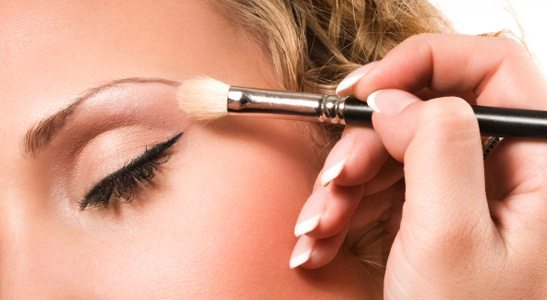The “Mirror, mirror, on the wall, who is the fairest of them all?” phrase takes on an innovative connotation when VR, machine learning, AI, and big data interferes. Mirrors have evolved from a polished glass made of quartz and sand to multifunctional displays and have migrated to our devices equipped with cameras. As an irreplaceable attribute in the beauty industry, a mirror revolutionized when it became smart.
Cosmetic brands like MAC, YSL, Estee Lauder, and other industry giants leverage using smart makeup mirrors to reach a wider audience and offer their consumers a fun and engaging way to shop. Let’s look deeper into the smart mirrors’ reflection and see how it transforms everything related to beauty.
The World of Augmented Reality in Mirrors
Before we start singing the praises of modern technology, let’s understand how smart mirrors work and distinguish their types. In retail stores, installing smart displays equipped with motion sensors, cameras, and gesture recognition technologies, which turn them into smart mirrors, is already in full swing. Essentially, this is IoT.
However, every customer of a beauty brand can get a mobile smart mirror at home by downloading the necessary app to any device with a camera or using a web application via an Internet browser. Many cosmetic companies already offer virtual testers to their customers, and their conversions are skyrocketing! According to a Shopify survey, products with an AR feature showed a conversion rate of 94% higher than those without AR.
How Does It Work?
It’s all about the software behind the mirror. Basically, you can transform any digital display into a smart makeup mirror experience. Sensors on the displays transmit information to the software, which detects the frames of the areas on the face on which a certain cosmetic product should be applied. It can be compared to Snapchat and Instagram face masks; however, virtual makeup try-ons are completely customizable and tailored to each client, guaranteeing a hyper-personalized approach and experience.
In addition to trying on various makeup products and finding the perfect shade matching their skin, customers can take selfies and post them online, thus, increasing the brands’ awareness.
Tech companies developing AR and AI-based solutions for retail tend to offer SDKs that can be customized for each brand.
How Do Smart AR Makeup Mirrors Revolutionize the Beauty Industry?
In 2020, the Covid-19 pandemic led to a 20-30% drop in revenue for companies in the beauty industry. Brands had to transform and offer their customers a new experience in everything from abandoning physical store visits to virtual events from Fenty Beauty, Charlotte Tilbury, and BareMinerals. They’ve had to master new platforms and technologies to retain existing customers. But who knew it would become so in-demand and bring in new loyal consumers?
Hyper-Personalized Customer experience
Smart makeup mirrors allow companies to find a large-scale personalized approach to each client. And this is essential nowadays, especially for Generation Z, Alpha, and Millenials. People are no longer interested in mass-produced one-size-fits-all makeup and skincare products. They want an individual customer journey with a personal consultant at hand. And that’s what AI, and AR-powered smart mirrors offer.
The makeup usage dropped 28% after the pandemic. People have become more selective in cosmetics, focusing on more expensive cruelty-free products made from high-quality ingredients. Services like Banuba try-on allow companies to offer their consumers a personalized time-efficient way of testing makeup and ordering products in a couple of clicks.
Increased Customer Engagement
Smart AR makeup mirrors became a new channel of interaction with consumers. Many buyers admit that they often do virtual try-ons just for fun and would have never done it in a physical store. The increased customer engagement not only results in revenue growth but also helps attract new buyers. The procedure of trying on new makeup invites people to share their looks on social media, enhancing the brand’s awareness.
Lower Refund Rates
Online shopping refund rates reach 30%, resulting in revenue loss for brands. Buyers return goods as they don’t turn out as they expected. When it comes to makeup, it’s hard to predict if a foundation or lipstick shade will match your skin tone. Virtual try-ons allow customers to find a perfect product, test it in different lighting, or choose a perfect fit for a certain look. This results in a higher satisfaction rate and fewer refunds. Besides, AI-based smart makeup mirrors offer users a selection of products to replace the unmatching ones based on their skin tone, age, hair color, and overall preferences.
Increased Basket Size
Smart mirrors invite customers to try additional products and have personalized offers. Creating a look for the sake of interest or fun increases conversions. The likelihood of adding suggested cosmetic products to a cart is high as ever. The augmented reality feature prompts people to experiment with their looks with new shades and textures.
Smart AR makeup mirrors came to stay. They altered how people treated online makeup shopping, increasing trust, engagement, and satisfaction rates, thus bringing benefits to both businesses and consumers. This revolution in the beauty industry is just starting, and we can only imagine how innovative technologies can change it for the better.




